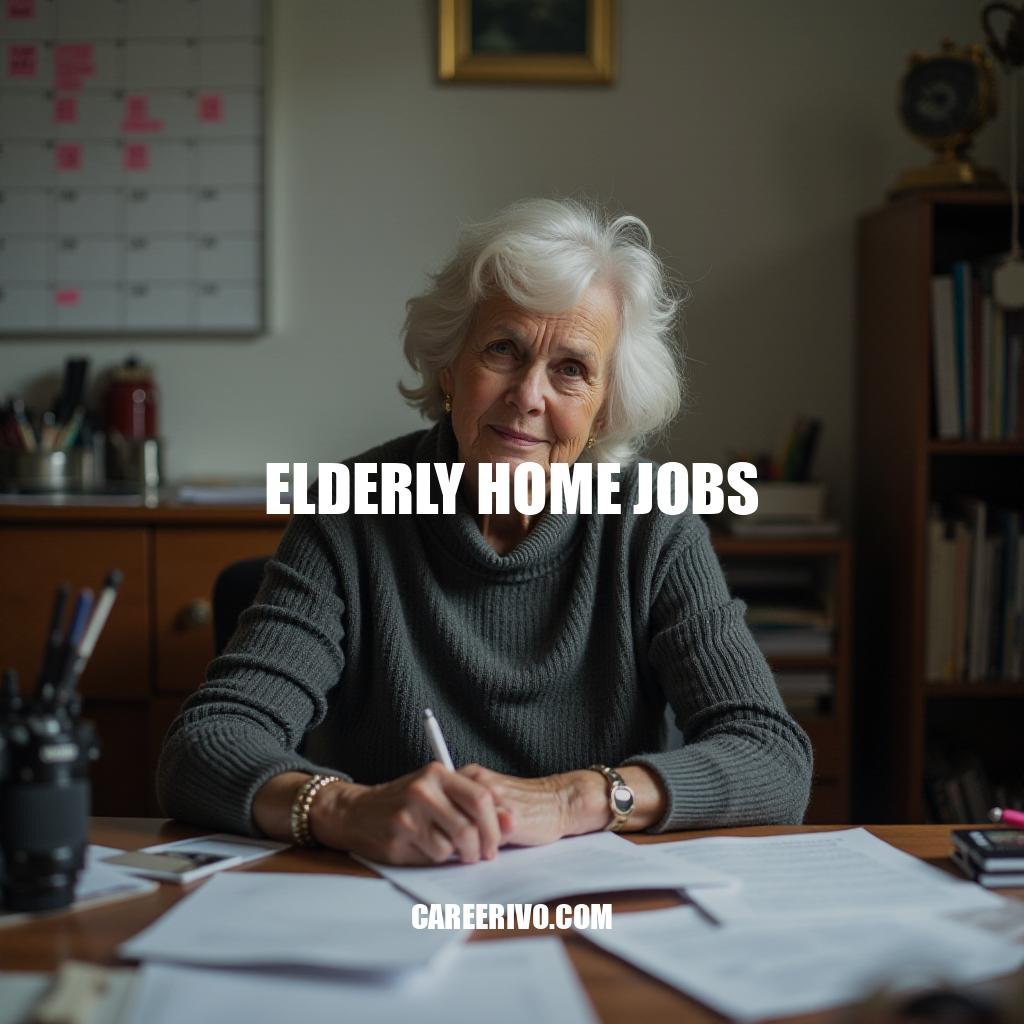
Elderly home jobs are important roles that help older people in care homes. They include caregivers, nurses, activity coordinators, and support staff who work together to make life better for the elderly. These jobs provide physical, emotional, and social support to help them feel comfortable and happy.
As more people live longer, there’s a growing need for these jobs to take care of older adults. These roles are vital because they help keep the elderly safe, respected, and connected to their community.
Core Responsibilities and Skills in Elderly Home Jobs
Elderly home jobs primarily involve ensuring the well-being, comfort, and dignity of senior residents. These responsibilities fall under several key categories:
Primary Duties:
-
Assisting with Daily Activities:
-
Supporting with bathing, grooming, dressing, and other personal hygiene tasks.
-
Helping residents eat, either by preparing meals or assisting with feeding.
-
Aiding with mobility, including helping them get out of bed, use a wheelchair, or engage in physical exercise.
-
Maintaining a clean and organized living environment, such as light housekeeping or laundry.
-
-
Managing Health-Related Tasks:
-
Administering medications according to schedules and recording any changes or reactions.
-
Monitoring vital signs and reporting any concerns to healthcare professionals.
-
Coordinating healthcare appointments and ensuring residents attend check-ups.
-
Providing first aid or emergency care if needed.
-
-
Offering Companionship:
-
Engaging residents in meaningful conversations to combat loneliness.
-
Facilitating recreational activities like arts and crafts, gardening, or board games to encourage mental stimulation and joy.
-
Accompanying residents during walks or social outings to create a sense of connection and normalcy.
-
Essential Skills Required:
-
Empathy and Compassion: Building trust and understanding with residents requires genuinely caring about their emotional and physical needs.
-
Patience: Seniors may move or respond at a slower pace, necessitating a calm and supportive demeanor.
-
Organizational Capabilities: Managing tasks like medication schedules, dietary needs, and activity planning demands excellent time management.
-
Physical Stamina: Assisting with mobility or physically demanding tasks requires strength and energy.
-
Communication Skills: Being able to clearly convey information to residents, families, and medical staff is vital.
-
Observational Skills: Picking up on changes in a resident’s health or behavior ensures proactive care.
-
Adaptability: Every resident’s needs are unique, and care plans may evolve.
Individuals working in this field play an irreplaceable role in enriching the lives of elderly individuals, often becoming trusted companions and advocates. Their dedication and skills contribute significantly to creating a nurturing and safe environment for seniors.
Elderly Home Jobs: Vital Roles in Care Homes
Elderly home jobs are vital roles that provide physical, emotional, and social support to older adults in care homes. These jobs involve assisting with daily activities, managing health-related tasks, and offering companionship to help seniors feel comfortable, happy, and connected to their community.
Key Responsibilities
Caregivers, nurses, activity coordinators, and support staff work together to ensure the well-being, comfort, and dignity of senior residents. Their primary duties include supporting with bathing, grooming, dressing, and other personal hygiene tasks, as well as helping with mobility, meal preparation, and maintaining a clean living environment.
Health-Related Tasks
In addition to these practical responsibilities, elderly home jobs also involve managing health-related tasks such as administering medications, monitoring vital signs, and coordinating healthcare appointments. Providing companionship is equally important, engaging residents in meaningful conversations, facilitating recreational activities, and accompanying them on social outings.
Essential Skills
To excel in these roles, individuals require essential skills such as empathy and compassion, patience, organizational capabilities, physical stamina, communication skills, observational skills, and adaptability. By pursuing a career in elderly home care, individuals can make a significant impact on the lives of seniors, becoming trusted companions and advocates who enrich their quality of life.
Personal and Societal Benefits
Working in this field offers personal rewards, including the satisfaction of knowing that one’s work is making a difference in the lives of others. It also provides an opportunity to develop valuable skills, such as empathy, patience, and communication, which can be applied to other areas of life. Furthermore, contributing to elderly care has societal benefits, helping to address the growing need for care services as more people live longer.
Conclusion
Ultimately, elderly home jobs are a vital part of our society, providing essential support to older adults who require care and companionship. By pursuing these roles, individuals can make a meaningful contribution to improving the quality of life for seniors, while also gaining valuable personal and professional rewards.


